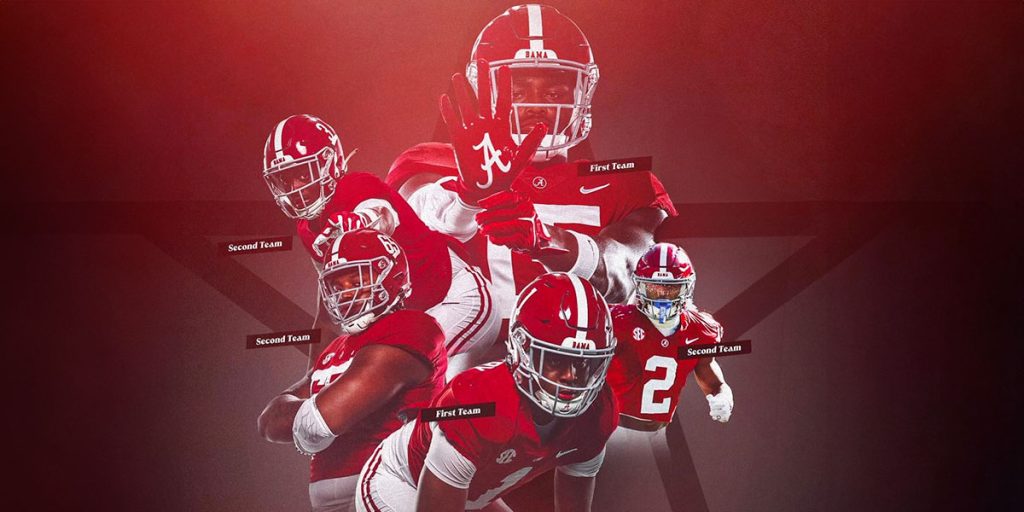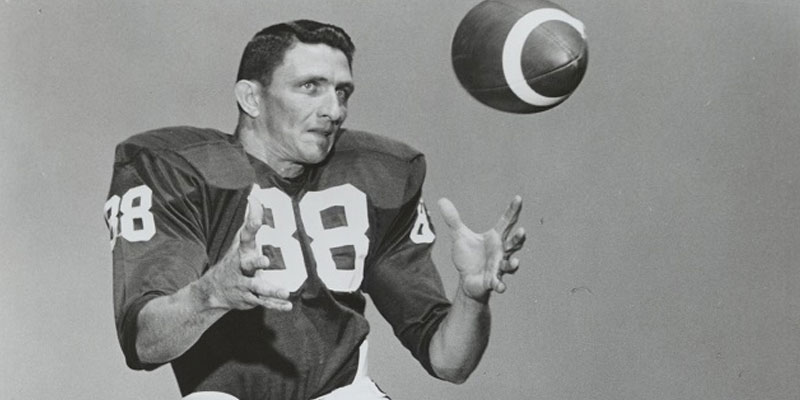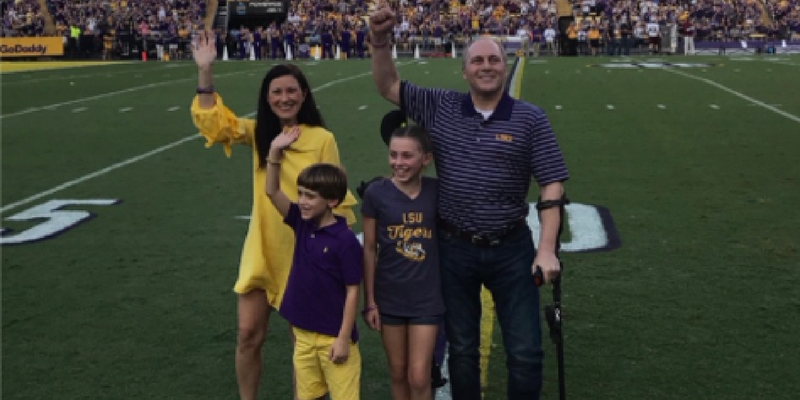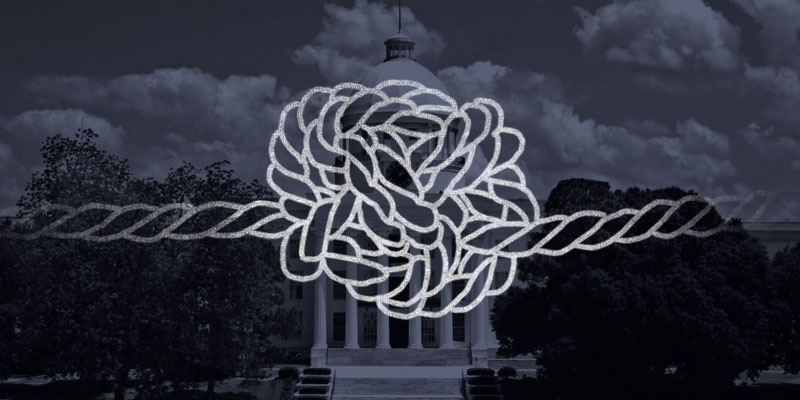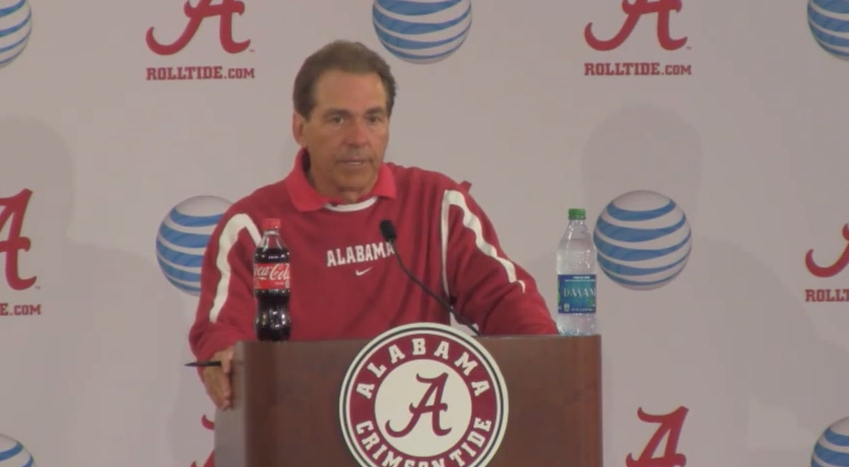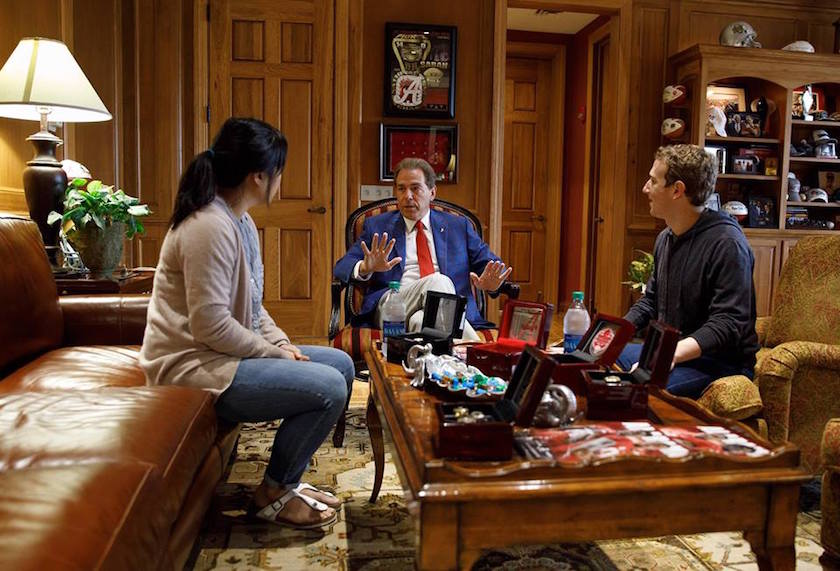GQ magazine recently commissioned Warren St. John, the author of the definitive Alabama fan book Rammer Jammer Yellow Hammer, to write a profile piece on University of Alabama football coach Nick Saban.
Here are seven things we learned from St. John’s piece:
1. He’s concerned the national championship game takes away from his recruiting time.
A few days after Alabama beat LSU to win the 2012 national championship, Rumsey (one of Saban’s friends) and Saban were on the phone together. Most of their conversations take place precisely between 7:12 A.M. and 7:17 A.M., when Saban calls as he drives to work. But this call happened to be in the afternoon. The two men almost never discuss football—Rumsey is the rare Tuscaloosan who doesn’t know or care much about the game, which, he suspects, has something to do with why he and Saban have become friends. But given that his golf buddy had just won the national championship, Rumsey figured he ought to say a few words of congratulations. So he did, telling Saban his team had pulled off an impressive win.
“That damn game cost me a week of recruiting,” Saban grumbled into the phone.
Rumsey at first thought he’d misheard. He asked for clarification. Saban repeated himself. He just knew that while he was preparing for the title game, enduring all the banquets and media that came with it, some other coach was in the living room of one of his recruits, trying to flip the kid. The thought was making him crazy.
Rumsey pointed out that Saban and his team had just been on national television before millions of people—including, most likely, every high school recruit in the country—and reminded Saban that they had won the national championship.
“I said, ‘I’m not sure, but I think that helped you,’” Rumsey recalled. “And he said, ‘I just don’t know. Maybe. Maybe that was good.’”
2. He doesn’t like being compared to the devil.
“It used to upset me,” he says. “I would come and say to my wife, ‘I’m not like that at all. Why do these guys say I’m that way?’ And she would say, ‘You ever watch yourself in a press conference?’ You can blame the other guy for saying it, or you can look at yourself and say, ‘I must have contributed to this.’”
And yet Saban, now entering his seventh season at Alabama and soon to be a grandfather, insists that the caricature of him as Lucifer in a headset no longer applies.
“I think I’m pretty misunderstood, because I’m not just about football,” he tells me. “I’m kind of portrayed as this one-dimensional person who—this is everything to me.” He gestures toward the football building around him. “I almost feel like I’m not that way at all.”
3. He eats the same thing every day.
Saban is a fit 61, owing in part to regular pickup basketball games with staff, a frenetic pace on and off the field, and a peculiarly regimented diet. He doesn’t drink. For breakfast, he eats two Little Debbie Oatmeal Creme Pies; for lunch, a salad of iceberg lettuce, turkey, and tomatoes. The regular menu, he says, saves him the time of deciding what to eat each day.
4. He’ll bite your head off if you speak ill of Mick Jagger.
[Saban’s assistant Cedric] Burns is at the wheel of Saban’s black Mercedes S550, and because he knows Saban’s musical taste veers toward the Eagles, Al Green, and the Rolling Stones—no country—he’s got “Gimme Shelter” cued up on the stereo. Saban sits shotgun, and I climb in the back. As Burns guides the sedan past columned fraternity houses on the arbored Alabama campus, Saban mentions he’s seen the Stones twice. In an attempt at levity, I tell him I’d recently tried to turn my four-year-old daughter on to the Stones but that she had responded by earnestly asking me, “Dad, how come the man in these songs can’t sing?”
Saban spins around from the front seat and shoots me the bug zapper.
“Mick Jagger can sing,” he says, before turning back to face the windshield. “Mick Jagger is a great entertainer.”
5. He loves his wife.
The Sabans met in seventh grade, were married by 21, and spent the next few decades moving—at least fifteen times—as Saban worked his way through the ranks as an assistant. Along the way they adopted two children, now grown. They’re devout Catholics who rarely miss Mass, and they talk constantly during the day. Whenever Saban flies, he calls her right before takeoff and just after landing.
6. He’s apparently just like his dad.
The key to understanding her husband, Terry says, is knowing about his father, Big Nick, the withholding owner of a gas station and a Dairy Queen who died when Saban was in his early twenties. Big Nick’s passion was coaching a Pop Warner football team he founded, the Idamay Black Diamonds. Saban worked at his dad’s gas station and quarterbacked the Black Diamonds—and whether at the station or on the field, he took the brunt of his father’s perfectionism.
Terry still remembers how the neighbors came over to congratulate her future husband after a big win. As they patted him on the back, “I only heard comments from his dad about how he could have done better.”
Still, it was hard to argue with Big Nick’s results. At one point his Black Diamonds won 36 games in a row. One year they allowed their opponents exactly zero points.
7. He doesn’t give a hoot about your threats, Tennessee. Bring on “Hate Week.”
It’s midafternoon on campus, and Saban is in his car heading back to the football building. He’s got a final push of obligations before he heads off for his vacation on Lake Burton: another round of coaching kids at youth camp and, later in the afternoon, a flight to Athens, Tennessee, for a speech to 1,500 people at a chamber of commerce event. There’s going to be extra security. Angry that Saban will be speaking on their home turf, some Tennessee Vols fans have left threatening voice mails for the event’s organizers.
“One speech closer to vacation,” Saban says in the car. “They’re threatening to kill me. If they want to assassinate my ass, they need to go ahead and do it.”
Follow Cliff on Twitter @Cliff_Sims







